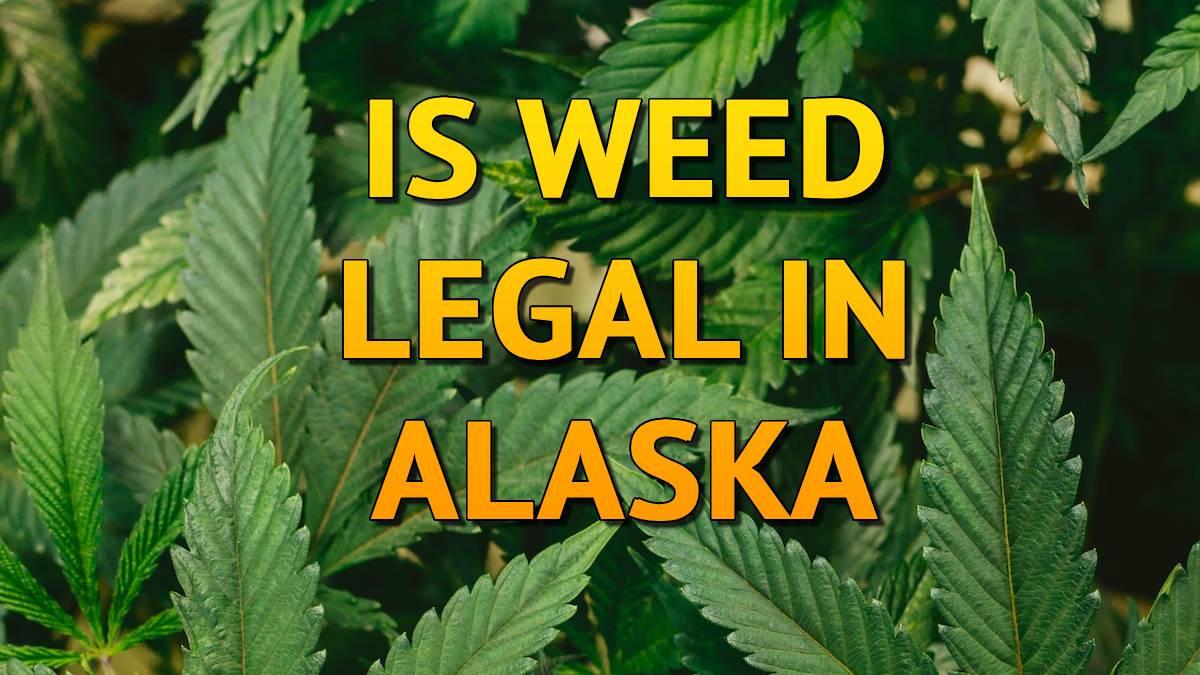Is recreational cannabis legal in Alaska? Is medicinal marijuana legal in Alaska? What about Alaska’s CBD laws? Find out about Alaska’s weed laws in this article.
We note that the subject contained in this article represents illegal activity in certain jurisdictions. Whilst we do not condone any acts which are contrary to any such laws, we understand that readers in those jurisdictions which have decriminalised cannabis may find this article of interest.
Home to more than 60% of the commercial fisheries in the U.S. and over 100 volcanoes, Alaska is by far the largest U.S state. Moreover, the natural environment of Alaska very much lends itself to fishing given that Alaska has over 3,000 rivers and features more coastline than the rest of the U.S. combined.
Alaska is also home to the famous Iditarod Trail Sled Dog Race – a brutal and competitive sled race which brings crowds from all over the world. The Iditarod travels through blizzards, snow storms and sub zero temperatures from Anchorage to Nome with a team of 14 sled dogs. The trail can take up to 15 days, and the fastest time was set in 2017 at eight days, three hours.
The most famous mushing run was in 1925, when a diptheria epidemic threatened Nome. Antitoxin needed to be transported from Anchorage, and travel by train stopped at Nenana. Sled dogs traversed the 674 miles to Nome, where frontrunner Balto became a celebrity with a statue in New York’s Central Park and an animated film.
It’s a cold place almost year round, so can you smoke bud to warm up?
Is recreational cannabis legal in Alaska?
Alaska has had a long and bizarre past with marijuana and its legal system. Recreational cannabis is legal in Alaska, but it hasn’t exactly been a walk in the tundra.
Back in 1975, Alaska was the second state in the U.S to decriminalize cannabis which reduced possession convictions to a $100 fine, or approximately $475 today. A week after decriminalization was passed as law, the state passed a historical ruling in Ravin v. State which declared the Alaska Constitution’s right to privacy protects an adult’s ability to use and possess a small amount of cannabis in their own homes, thereby becoming the first state to announce a constitutional privacy right regarding marijuana use and possession.
In 1982, decriminalization legislation was updated to cover up to four ounces in the home, or one ounce in public. A few years later, Measure 2 was passed which criminalized marijuana and imposed up to 90 days in jail, a $1,000 fine, or both for mere possession.
In 2000, a decade after cannabis had been criminalized through Measure 2, an initiative was put forward to legalise recreational marijuana use, which failed with just over 40% of the vote.
The Alaska Court of Appeals saw a case in 2003 in which the convicted had been in possession of eight ounces of marijuana. Following the 1975 Ravin v.s State ruling, the criminalization of personal possession was struck down by the Court.
There was another attempt to legalise recreational use in 2004, but this also failed with 44% of the vote, and in 2006, governor Frank Murkowski pushed for criminalization. This measure passed, and possession of under an ounce became a misdemeanor punishable by 90 days jail, and up to a year in jail for possession of one to four ounces. Possession of over four ounces became a felony.
In 2014, Alaska became the third U.S state to legalize recreational cannabis use when AS 17.38 was passed.
Adults 21 years or older are able to purchase and possess up to one ounce of cannabis product, and up to six plants, so long as no more than three are flowering at once. Alaskans can also gift marijuana to other adults, so long as it’s below the one ounce mark. Weed purchased in Alaska can’t leave state borders, even if you’re heading to another legal state.
Consumption is strictly banned in public places and on federal property – such as national parks – possession is treated as a Schedule 1 drug under federal law. Smoking is allowed on private property, but landlords are given the right to ban smoking on their terms.
Alaska is also unique in that they have lawful smoking areas within dispensaries. In December 2018, a bill was passed to allow dispensaries to have their own adjacent smoking areas, and these began opening in mid 2019.
Is medicinal marijuana legal in Alaska?
Alaska was one of the first states to legalize medicinal marijuana back in 1998. Measure 8 allows for a registered system of patients with debilitating medical conditions to purchase and use cannabis to ease their symptoms.
Patients must receive a certificate from their physician stating that they suffer from a debilitating condition. Alaska considers a wide range of conditions under this term, including HIV/AIDS, glaucoma, and cancer, and also any chronic condition which presents symptoms such as severe nausea, seizures, severe pain or muscle spasms characteristic of MS or ALS. Medical professionals are also able to put forward a medicinal marijuana recommendation for any other medical condition they believe it will assist.
Medicinal marijuana possession laws are the same as the recreational laws and allow for up to one ounce of usable marijuana and no more than six plants, with up to three flowering at one time. Patients are also not able to consume medical cannabis in the public view and violation could mean a medical marijuana card being revoked for up to a year.
Alaska also allows patients to nominate a caregiver to purchase cannabis on their behalf. This caregiver must not have ever been convicted of a felony controlled substances offence, and can be listed either as a primary or alternate caregiver. A caregiver can only be registered with one patient at a time, unless they are caring for family members.
The Farm Bill was passed at a federal level in 2018, and it legalized the sale and consumption of cannabidiol (CBD) products with a tetrahydrocannabinol (THC) content of less than 0.3%, making it non-psychoactive. Although CBD products won’t get you high, there’s research to suggest there are plenty of health benefits to be gained.
CBD can help with quitting smoking or drinking by helping ease withdrawal symptoms and assisting in retraining the brain’s triggers. There’s research which shows CBD can help minimise inflammation from conditions such as arthritis, but can also be helpful for minor aches and pains.
CBD can be consumed in a variety of ways, so it’s easy to find a method that works for you. Oils can be added to beverages or food, edibles can be purchased at CBD cafes, vape cartridges can be used in place of smoking and topical creams can be rubbed directly into the skin. There are even beverage companies who are getting into the market.
There’s also a range out there for your four legged friend – since animals have a very similar endocannabinoid system to humans, they can also reap the benefits of reduced anxiety, better quality of sleep and reduced inflammation.

